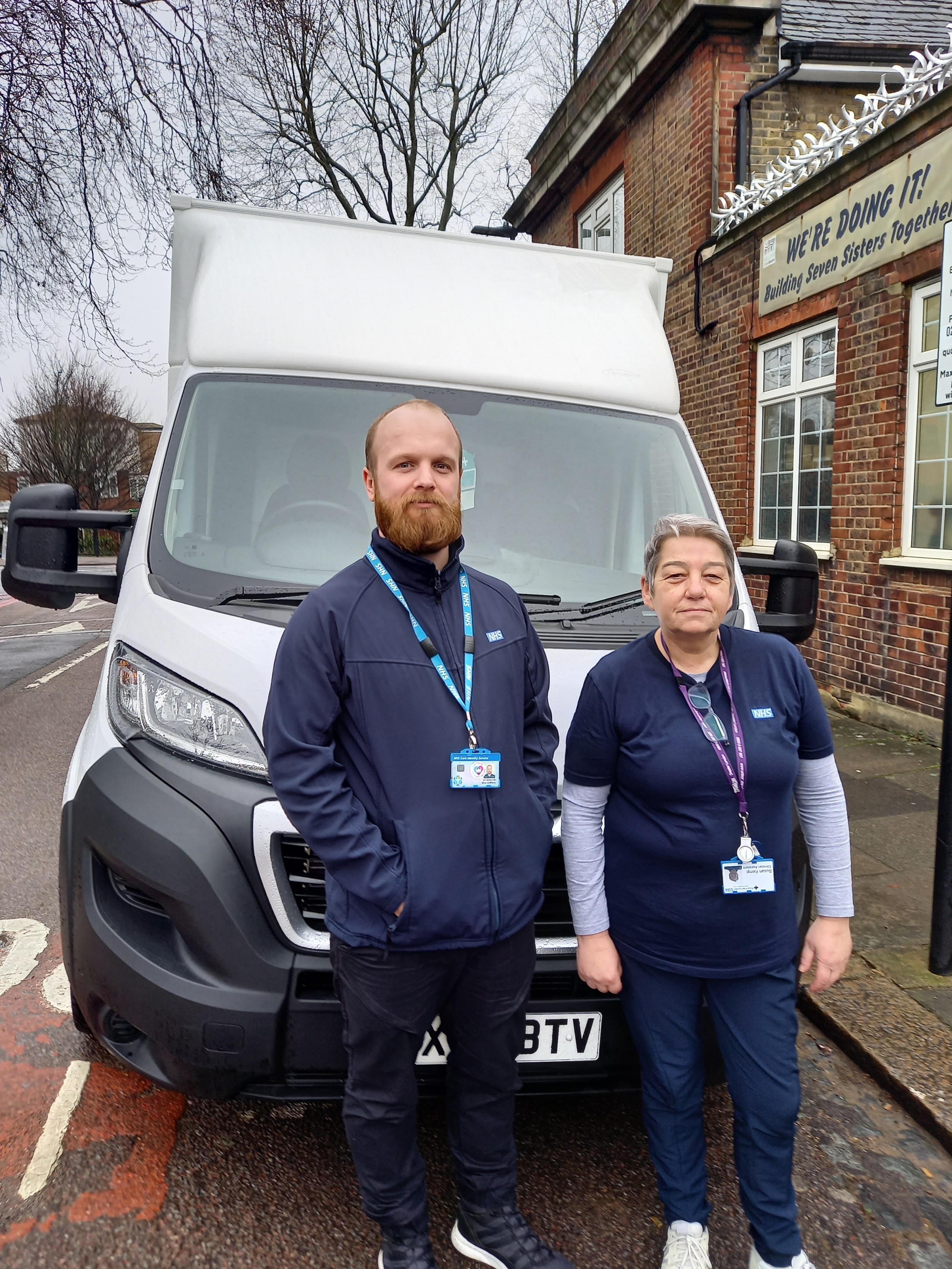A team from the Royal Free London have taken to the road to deliver “life-changing” care with the aim of diagnosing liver cancer earlier.
This is part of a new initiative by the NHS to check for liver cancer in high-risk communities in a bid to save lives.
Michael Griffiths and Sue Kemp, both assistant practitioners in community hepatology, run the Royal Free London’s agile testing clinic, with the help of a van which contains all the kit they need to run a liver surveillance service.
They deliver liver MOTs – essentially a fibroscan (like a wand) which is placed at the bottom of the right ribs and sends a pulse through the body which ‘wobbles’ the liver to assess its stiffness. The harder the liver the higher, and potentially more dangerous, the score. The scan is quick, painless and non-invasive.
The patient will then either be advised if there’s currently no further action needed (approximately 75% of all those assessed) or a blood test will be taken and they could be referred on for further testing. For people who drink heavily cirrhosis of the liver can develop which leads to a significantly increased risk of developing liver cancer.
Mark, 55, from north London, was one of the first people to take part in the pilot last October.
He said: “I have been drinking since I was 14 but when I moved to China a few years ago I started drinking a lot of vodka. I came back to the UK and went into rehab but when I left I began drinking heavily again. My local alcohol recovery service (HAGA, run by the national charity Humankind) told me about this service that came once a week and that’s how I ended up meeting Mark and Sue and getting my liver tested.
 "My local alcohol recovery service (HAGA, run by the national charity Humankind) told me about this service that came once a week and that’s how I ended up meeting Mark and Sue and getting my liver tested.
"My local alcohol recovery service (HAGA, run by the national charity Humankind) told me about this service that came once a week and that’s how I ended up meeting Mark and Sue and getting my liver tested.
“My results showed my liver was badly scarred. I’ve since had further scans and tests at the Royal Free Hospital and have now been advised I’ll be monitored with an ultrasound every six months. This test has been life-changing for me but it hasn’t stopped there. When I come back to the recovery service I also like to pop in and say hello to Michael and Sue. I’m now off the spirits and drinking just two glasses of wine each day. I haven’t been able to stop completely but I have made huge strides and my health has improved.”
Sue said: “We can see things have visibly improved for Mark since he first came to see us. Our engagement with Mark has been just as important as his engagement with us. Mark has become such an advocate for our service and encourages others at the start of their journey to come and see us.”
Michael added: “The brilliant thing about this service is we can go anywhere. Since we started we’ve seen more than 500 patients. At the moment we’re currently visiting high-risk communities such as addiction services and homeless shelters but there is no reason why we couldn’t be at a shopping centre or sporting event. We’re mainly looking to reach people who are currently or have been heavy drinkers – drinking 50 units or more a week.”
Doug Macdonald, consultant hepatologist, at the Royal Free London, said: “Diagnosing liver cancer at an early stage can not only increase survival but also avoid the large costs of late stage diagnosis. It’s essential that the NHS get on the front foot and we hope to make this service a regular part of the journey for anyone seeking help for alcohol reduction.
Around 6,100 people are diagnosed with liver cancer each year and the number of cases has doubled over the past decade and is expected to rise.
Currently only one in three liver cancers are diagnosed at an early stage, but this programme will help catch more liver cancers earlier, giving patients a much better chance of beating the illness. If diagnosed early, patients have a 70-90% chance of survival for five years or more with treatment.
The Royal Free London saw the largest number of patients referred on a two week wait suspected cancer pathway of any London provider during 2022 and provided the second largest number of patients their first treatments during the same year.
 Translate
Translate
